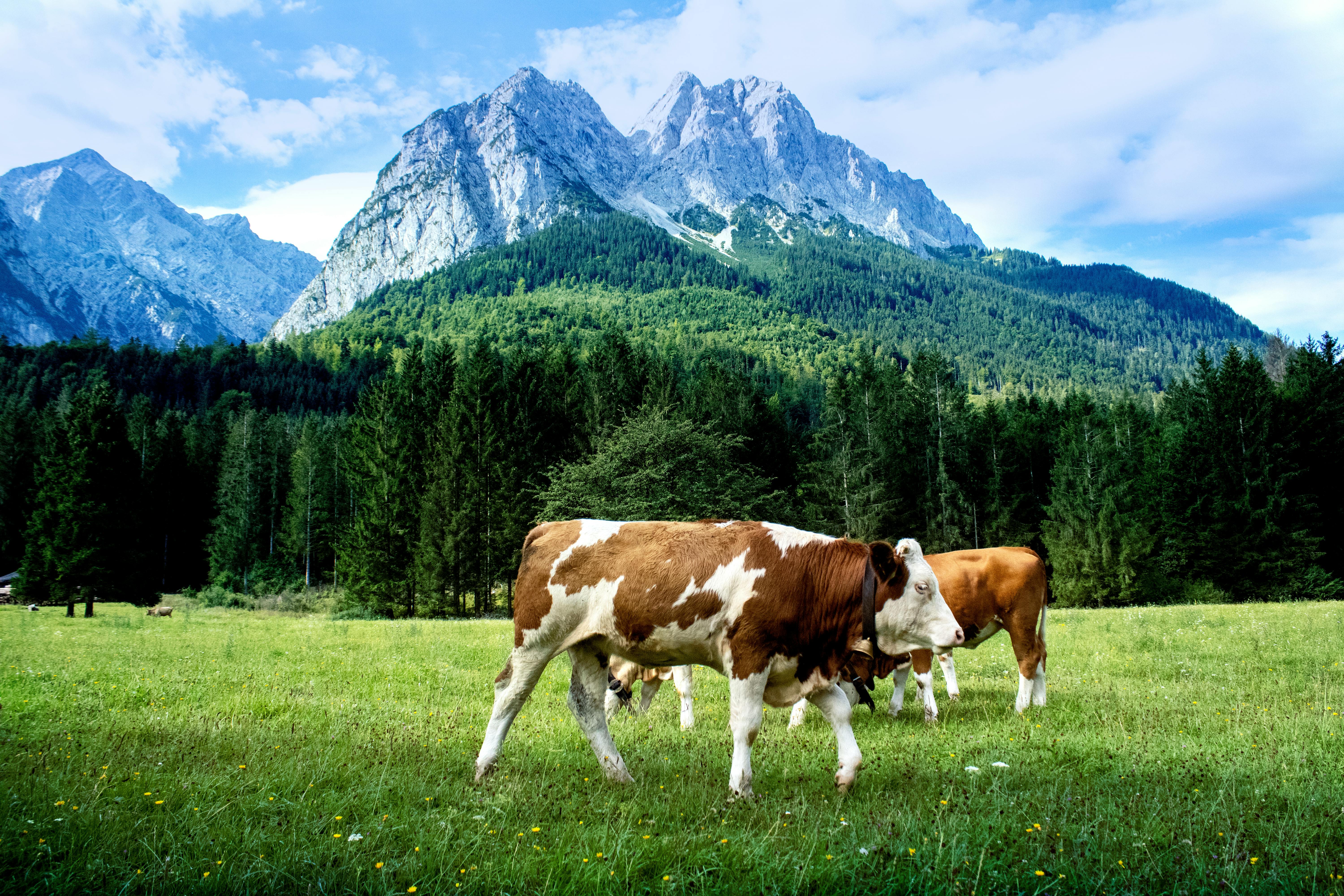
Low-carbon beef: Is a greener cut worth the extra buck?
Research shows consumers are willing to pay more for steaks that help reduce greenhouse gas emissions.
Move over, grass-fed beef. Steaks labeled "low carbon" could soon come to U.S. groceries. Many shoppers will pay extra for them, according to research by Carola Grebitus, a Dean’s Council Distinguished Professor at the Morrison School of Agribusiness in the W. P. Carey School of Business.
"Consumers who believe beef production contributes to greenhouse gas emissions have a positive willingness to pay for carbon-friendly beef," writes Grebitus in "The Effect of Information and Beliefs on Preferences for Sustainably Produced Beef," which was recently published in the European Review of Agricultural Economics.
In 2022, the Department of Agriculture (USDA) approved a program that would allow ranchers to market their meat as low carbon. Participants would have to prove they raised their herds in ways that produced 10% fewer greenhouse gases than the industry norm.
The price of sustainability
Raising low-carbon beef would be more costly, a factor that would deter some ranchers.
Grebitus and her co-authors, found that targeted marketing of carbon-friendly beef to receptive shoppers would boost its sales. They also found that some beef buyers might pay as much as $2.08 more per pound for carbon-friendly boneless ribeye steaks.
"Providing information increases the premium shoppers are willing to pay for low-carbon beef," according to Grebitus, who teaches courses on Food Product Innovation and Development and Behavioral and Experimental Economics.
She and lead researcher Deepthi Kolady of Oklahoma State University, along with co-author Mariam Ishaq (formerly of South Dakota State University, now at UT Health School of Public Health in Austin), began work on this project in 2021 in anticipation of the USDA’s approval of the program.
They conducted an online survey of 860 grocery shoppers who routinely buy meat. Most were middle-aged, somewhat better educated than the general population, and slightly more female because women do more grocery shopping than men.
The survey asked participants, "Do you believe beef production is contributing to greenhouse gas emissions?" In the results, shoppers fell into three categories — believers, neutrals, and non-believers. Those who believe global warming is occurring and those with neutral feelings were more likely to pay more for carbon-friendly beef than those who do not believe in global warming.
Neutral buyers hold the key
Believers indicated they needed little incentive to buy low-carbon beef and would pay more for it, according to the authors. The non-believers, on the other hand, indicated they would be unlikely to buy more expensive carbon-friendly beef, even if they received information about it.
Neutrals appear to hold the key to whether low-carbon beef would succeed in the marketplace.
"Consumers with neutral beliefs (who comprise one-third of our sample and hence could become a significant share in the population) are like a blank slate," adds Grebitus. "We can consider them open to information, and policymakers could target this segment to convey information that is important to make sound decisions toward sustainably produced beef products.”
"Our study shows that information impacts the willingness to purchase carbon-friendly beef for neutral consumers the most," the authors write. "Unless they are provided with information, consumers with neutral beliefs do not prefer carbon-friendly beef and make purchase decisions similar to those who are disbelievers."
Building trust with labels
The paper advises marketers to use infomercials, point-of-sale information, information booths, and social media campaigns to achieve their objectives.
The research, which was funded by the South Dakota Agricultural Experiment Station, also found that shoppers would be more inclined to buy beef that they knew had been humanely raised; however, they were even more likely to buy low-carbon beef.
Grebitus acknowledges the research findings are limited because consumer response to low-carbon beef is hypothetical — no such meat is currently labeled this way. "Once such a label is introduced to the market — beef could also be sold as carbon-friendly if it was pasture-based in the beginning … with climate-friendly production practices but then moved to a grain-based feedlot". "This would ultimately change how climate-friendly a product is. This, in turn, could change consumers’ willingness to pay."
Independent certification of carbon-friendly beef will be essential. "Third-party verification similar to USDA’s Organic designation will be important to gain the trust of consumers," says Grebitus.
Raising low-carbon beef would require ranchers to graze cattle in smaller areas than usual. "There is scientific evidence that this type of intensive grazing has lower greenhouse gas emissions than continuous grazing, which is how most cattle are currently grazed," according to Grebitus. She and her co-authors are working on getting grants to conduct full life-cycle assessments to quantify the differences in emissions between the two systems.
The new labeling category comes at a time when U.S. beef consumption has fallen dramatically. In the mid-1970s, Americans, on a per capita basis, ate about 90 pounds of beef annually. Today, per-person consumption has fallen to about 59 pounds a year, according to the USDA.
Meat producers have another worry — an aging audience. Some research shows that beef eaters tend to be 50 and older, with younger shoppers preferring other types of protein. Agriculture contributes 10% of U.S. greenhouse gas emissions, according to the EPA, and livestock, especially cattle, account for two-thirds of that amount.
Latest news
- Pop culture is key to effective teaching
How a management and entrepreneurship professor uses Ted Lasso and other pop-culture touchstones…
- Artificial intelligence in business master's degree helps Nathan Merriman combine business strategy with technology
Nathan Merriman (MS-AIB '25) had been working in business for a few years when he learned about…
- How the Executive MBA empowered Scott Gates to be a mission-driven leader
Scott Gates (BS Marketing '04, Executive MBA '15) had a very positive experience during his…